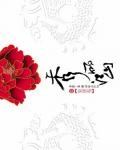Volume 3: The Land of Jingchu Chapter 231 Heavy Weapon
The formal conferment of the Nine Gifts had already taken place in the morning, and a relatively informal banquet was held in the General's Mansion in the evening.
Except for the generals of the orthodox army and Gan Ning who led the fleet to sea, almost all the important civil and military officials of the general's mansion were present.
Including... Pang Tong and Pang Shiyuan from the Ministry of Works, whom many people have never seen!
Although Pang Tong's appearance was even more "shocking" than the rumors said, before the banquet, Pang Tong was the most "welcome" official!
At this time, Bai Tu had not yet taken his seat, and everyone was casually exchanging a few words with familiar colleagues. Naturally, there were also officials or representatives of the gentry who wanted to "advance" and took this opportunity to get to know the important staff of the general's mansion.
Usually, the focus at this time is Lu Su, Chen Gong or Lu Kang, these officials, as well as other officials from the Ministry of Civil Affairs and the Ministry of Personnel.
However, after learning that Pang Tong would also attend this time, countless colleagues and representatives of aristocratic families who had not yet entered officialdom began to surround him!
Even the people around Lu Su seemed a little colder...
It was not for any other reason, but because Pang Tong had too many "projects" in his hands - not to mention the salt profits that had been mainly handed over to the Ministry of Households, now from the outskirts of Jinling all the way to the vicinity of Beigushan, there were hundreds of workshops of all sizes that were connected in this vast expanse, and most of them were assisting the Ministry of Works!
For example, after gradually recovering the profits from copper and iron, the Ministry of Industry has built a blast furnace for smelting iron, where tens of thousands of kilograms of iron ore are turned into iron blocks every day...
The technical content of early blast furnace iron smelting was not high. As long as the principle was understood, blast furnaces could be built everywhere even when people were extremely poor.
When the technology was still very basic, charcoal was generally used as fuel. Modern technology uses coke, which is the product of coal distillation. Compared with coal, coke has a lower sulfur content, which can prevent the reaction between sulfur and iron.
Of course, in the Chengji world, there is no coal, let alone coal distillation technology. The blast furnaces of the Ministry of Industry naturally burn charcoal.
The current plan to expand production involves opening factories in Kuaiji and Yuzhang - one reason is that they are close to the mines, and the other is that they are close to the woods.
Bai Tu was also helpless. Relying too much on charcoal would not produce any significant results in the short term, after all, the population and industrial scale were limited at the moment. However... in the long run, it would cause great damage to the environment.
However, the iron produced by such a "simple" blast furnace was indeed refined at an astonishing speed, just as they were as surprised when they saw salt mountains appearing in the salt field, but... the quality was quite average.
Therefore, the Ministry of Industry outsourced many steel-making workshops - the steel-making method was a technology that had already existed in the Western Han Dynasty.
It is called frying "steel", but the finished product is actually more like wrought iron.
The low-quality pig iron produced by blast furnace iron smelting was transported to these private workshops in carts, and then their wrought iron output was contracted and given "commissions".
This alone supports countless iron smelting workshops.
The personnel are ready...
Casting mountains into copper and boiling seas into salt are traditional skills of Jiangdong. Just like after the private salt fields were closed, a large number of salt workers were used as collateral to pay off debts to the general's mansion... The iron-smelting workshops, which have been squeezed out by blast furnace iron-smelting and have no room for survival, can only take orders from the Ministry of Industry to make a living - also known as "working".
In this way, the situation of private iron smelting workshops was almost entirely controlled by the General's Office.
If you want to cooperate with the Ministry of Industry, you can only make the workshop appear "transparent" in the eyes of the Ministry of Industry and accept supervision...
Almost all the aristocratic families in Jiangdong used to be involved in sharing private salt and iron. Now the former have disappeared and the latter can only rely on the Ministry of Works!
Three years ago, when Bai Tu and Lu Kang discussed the issue of salt and iron, Lu Kang was not very optimistic, believing that not only would there be great resistance, but it would also likely lead to conflict.
However, now... I can only work for the Ministry of Industry!
After all, it is better to take orders from the Ministry of Industry than to dig iron ore and smelt iron by yourself. As for the few ironwares he privately stored, Bai Tu really doesn't think much of them. As long as they are not crossbows, heavy armor or the like, the control is much more relaxed.
Even if some workshops lack technology, but have high awareness and are relatively obedient, the Ministry of Industry will provide technical guidance.
Seeing this, other workshops were even more afraid to show off. After all, there were many workshops that wanted to cooperate with the Ministry of Industry, but there was only one Ministry of Industry...
In any case, a sufficient amount of "wrought iron" must be recycled from the "pig iron" that leaves the Ministry of Industry.
Furthermore, in the Ministry of Industry, the "steel pouring method" would be used to cast pig iron and wrought iron in a certain proportion and forge them into steel!
The pouring steel method is to melt pig iron and pour it on wrought iron to form steel - or "high carbon steel".
The steel pouring technology was born in the period from the end of the Eastern Han Dynasty to the Three Kingdoms period. However, it was not used on a large scale until the Southern and Northern Dynasties. It was developed in the Tang Dynasty. There were detailed records and classifications in the Song Dynasty. The technology was further improved in the Ming Dynasty...
In the 19th century, Germany's Krupp rose from a small workshop to become a military industrial giant by using a technology similar to the pouring steel method, also making steel from a mixture of pig iron and wrought iron.
Of course, the steel forged in this way, in modern terms, is "high carbon steel", which has high hardness but poor ductility and elasticity. It is also called "tool steel" and is difficult to quench.
However, some modern high-end kitchen knives also use a composite material of low-carbon steel and high-carbon steel - high-carbon steel for the blade and low-carbon steel for the blade, to make the kitchen knife both sharp and tough.
In terms of quenching, modern technology also has a double-liquid quenching method, which is water first and then oil, to avoid cracking after quenching...
The weapons made by the Ministry of Industry also follow this principle, casting wrought iron and cast steel together - the wrought iron obtained by frying steel is itself close to "low-carbon steel".
The shape of the knife is also the result of repeated experiments by the Ministry of Industry...
Even compared to the knives equipped to grassroots officers and even middle-level officers and loaded on armor, the current Ministry of Industry composite steel knives have absolute advantages!
Although it is still not as good as hundred-refined steel, but...what is the cost of hundred-refined steel?
It would take several master craftsmen and several years to forge one, and the quantity is extremely limited, so only the top generals are qualified to equip it.
Compared with mass-produced composite steel knives, the cost-effectiveness is completely crushed.
What's more...the technology of using hydraulic power for forging is already in the research sequence of the Ministry of Industry. Once it is successful and applied, hydraulically-forged steel will also be expected to be mass-produced.
However, this type of engineering technology is not a priority, after all, Pang Tong’s main focus is not on engineering.
This is just a project of the Ministry of Industry...
If it were not for the current General's Mansion, which still needed to continue to increase and maintain its popularity, Lu Su really wanted to suggest outsourcing the projects of digging canals, building roads, and building waterwheels and bridges. As the demand for projects increased, Lu Su gradually discovered that some people had become more skilled in construction.
Hiring "construction teams" to carry out construction work everywhere is more efficient than recruiting local laborers...
Judging from this year 's grain production budget, this situation may become more and more obvious in the future!
Although in the eyes of the aristocratic families, power, fame, or the status in the court or the opposition, are more important than wealth, but... who can ignore a Ministry of Industry that drives countless workshops?
What's more, Chen Gong of the Ministry of Personnel cannot reasonably and legally give official positions to people who have a good relationship with him. The Ministry of Civil Affairs is more inclined to train its own "construction team". After all, the major aristocratic families did not have such groups at home before, and they did not have any advantages... However, Pang Tong of the Ministry of Works can reasonably and legally give orders to workshops with which he has a good relationship - as long as the results are correct.
But they will definitely be disappointed. Pang Tong 's communication skills have not deteriorated. He is still the ugly man who can be discovered to have "interesting souls" after chatting. But... Pang Tong now is not very willing to pay attention to them.
In response to everyone's compliments, he just mumbled a few words in a bland manner. As for trying to get some information from Pang Tong to find out about the future direction of the Ministry of Works' projects?
dream!
Pang Tong just didn't want to pay attention to them, not that he was socially awkward. Even if they were first-rate counselors and debaters, they couldn't take advantage of Pang Tong...
If Pang Tong really revealed something, it was what he planned to reveal!
For example, now Pang Tong is reminding everyone to set up workshops as early as possible near several iron smelters that are to be expanded - but the Ministry of Households has already raised the land price.
Sima Lang also came forward and chatted with Pang Tong for a few words...
Pang Tong's attitude towards this Henei nobleman who had no direct interest in the Ministry of Works was better. Although his hair was getting thinner and thinner, Pang Tong still had some scholar's temperament.
Sima Lang was a man of good speaking ability, and he soon became very pleasant to talk with Pang Tong.
When Sima Lang intentionally or unintentionally turned the topic to iron smelting, Pang Tong didn't know whether he was really unprepared or had expected it, and he directly revealed: "Yes, there has been some progress in iron smelting. The reason why I came here today is to present the first batch of forged swords to the lord."
In fact, Sima Lang was more concerned about the quantity. After all, the previous "sea salt" only made the general's mansion rich, but the iron smelting skills... could directly improve the combat effectiveness of the army !
However, Pang Tong brought the topic to swords, so Sima Lang was reluctant to ask about the quantity.
Instead, Pang Tong took the initiative to say, "My lord, you were conferred the title of Marquis of Chu, and among the nine gifts you received, there are also three hundred Tiger Guards... This time, I want to present three hundred newly forged swords and heavy armors from the Ministry of Works to your three hundred Tiger Guards."
Battle armor actually also has interfaces for armor, but compared to weapons, the value of a piece of "treasure armor" is much lower at this time. After all... armor that is too thick will also affect the sensitivity of the battle armor. Scale armor was only popular during the Three Kingdoms period, and chain mail and willow leaf armor had not yet appeared, so military generals did not have much demand for it.
As for Ji-made soldiers, even fewer of them were equipped with thick armor - the cost was too high.
When he heard "three hundred pairs", Sima Lang lost most of his interest...
Obviously, in Sima Lang's view, the mere 300 sets of armor were only of symbolic significance. Compared with the copper and iron production of the Ministry of Works that he had inquired about, it was just a drop in the bucket.
Pang Tong noticed Sima Lang's disappointment, but did not explain much. Instead, he sneered secretly.
Not long after, Bai Tu came out and the banquet officially began!
First, they drank to celebrate Lord Bai's granting of the Nine Gifts. Then, as a representative, Ling Tong reported on the results of the battle in Jiangxia. Finally, before entering the banquet stage, the eye-catching Pang Tong stood up...
"My lord, you have been blessed by heaven and have been awarded the Nine Gifts for the benefit of all the people... Fortunately, the Ministry of Works has also forged the first batch of weapons and armor at this time. I hope to take this opportunity to present them to your brave warriors." Pang Tong said.
Of course, everyone knows that this must have been rehearsed long ago, otherwise how could so many soldiers be sent to the General's Mansion?
"Well, weapons are the weapons of war for a country, but they are also the weapons of fortune and importance that protect the people. Let's take a look at the swords forged by the Ministry of Industry!"






